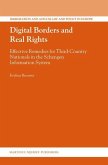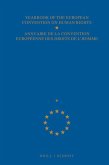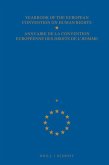Borders define territories within which identities and order are described and delineated. The triptych of indentities, borders and orders is central to understanding the nature of sovereignty and the relations between countries. Nowhere is this more apparent than in the European Union. The changing definition and placement of the border is one of the most striking features of the recent transformations of the Union. The definition of what a border is and where it is for persons has moved out of the territory of national sovereignty and has become the preserve in law of the European Community. The enlargement of the European Union towards the countries of Central and Eastern Europe has created new challenges for the concept of borders in the EU. This volume examines the extent of the Community power and the legal meaning of the EU's borders, as well as the ways to control (or not) the movement of persons across borders. It considers the legal texts - EC law on visas, the Regulations on visas, the meaning of borders for persons in Community Law, the Schengen" acquis and its incorporation into the EC Treaty(and where appropriate the TEU); national practice and its transformation with the insertion of the private sector's responsibility for the control of borders and judicial control. The point of departure is the perspective of the individual who is seeking to cross these borders.








